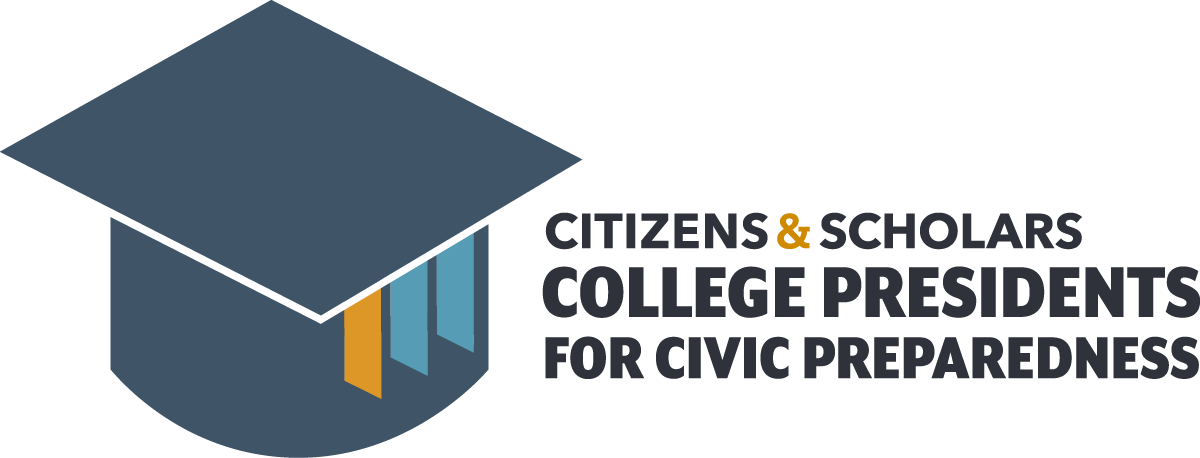Members of College Presidents for Civic Preparedness Make an Impact
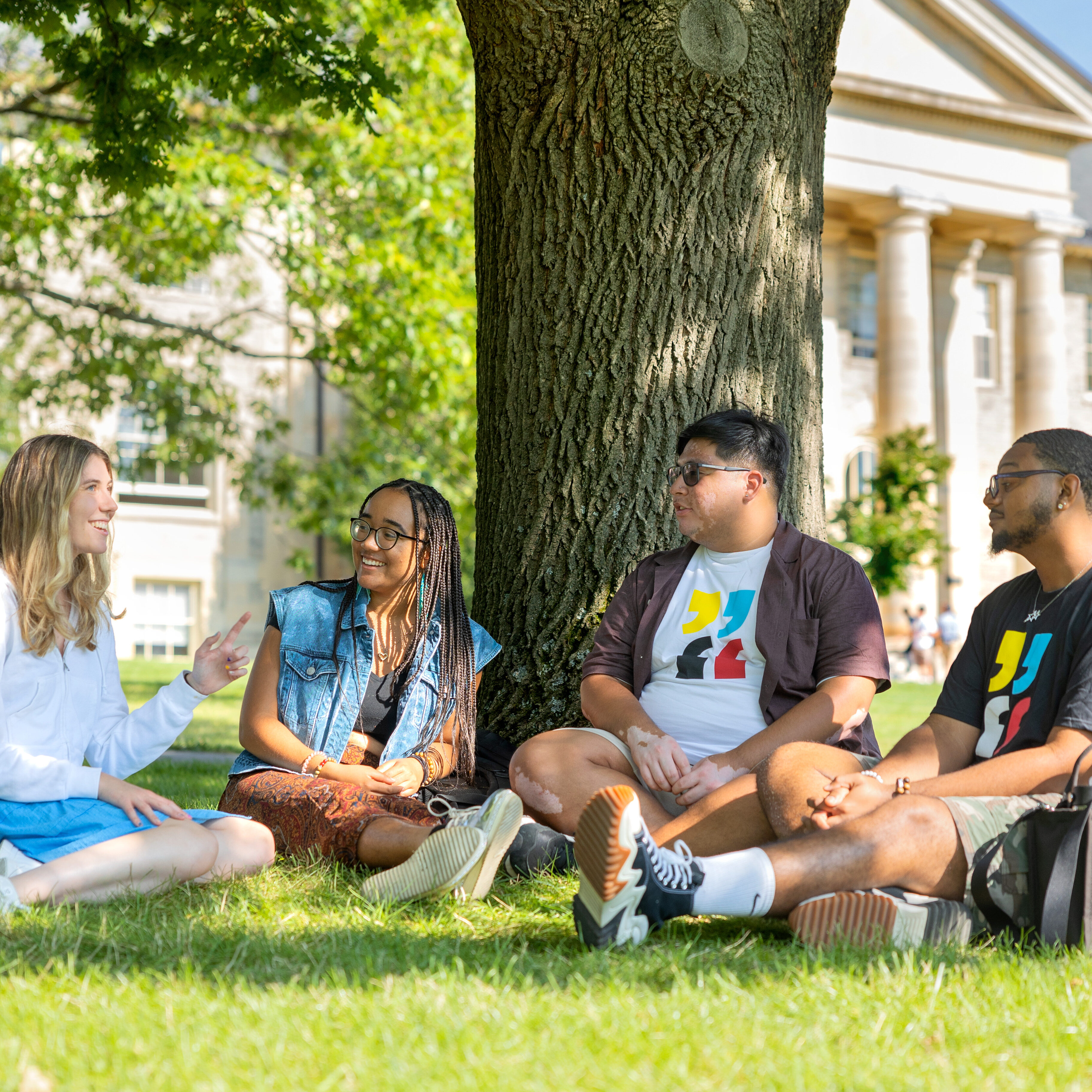
By the Numbers
Since the launch of College Presidents for Civic Preparedness in August 2023, presidents have implemented programming on their campuses to advance the principles of free expression, civil discourse, and critical inquiry. Here are just a few examples of their work, and the collective impact of the consortium.
At a glance: campus activities for academic year 2023-2024
- 185,459 students impacted across 15 institutions
- 10+ convocation addresses, and 1 inaugural address focused on free expression
- 5 orientation modules introducing students to civil dialogue and free expression
- 2 freedom of expression theme years
- 30+ participants, 20 campuses participating in the 2023-2024 Faculty Institute
- 12 institutions, 16 participants in the 2023 Measurement Working Group, 13 institutions and 22 participants in the 2024 cohort
Theme Years
University of Pittsburgh – Year of Discourse & Dialogue
Civic Commitment: Civil discourse
For: Students, staff, faculty
The University of Pittsburgh designated the 2023-2024 academic year as the Year of Discourse and Dialogue. Pitt offered funding for students, staff, and faculty to submit ideas to advance learning, research, engagement, or practice around discourse and dialogue. There were 35 projects selected for $5,000 grants, which included hosting speakers, organizing activities, workshops, and other community-building efforts. Among the outstanding projects was a “First Amendment Rights Teach-In” – a peer-led program to train law students to facilitate conversations about free expression with non-law students.
Cornell University – Free Expression Theme Year
Civic Commitment: Free Expression
For: Students, staff, faculty
Cornell University President Martha E. Pollack designated the 2023-2024 academic year as a “Freedom of Expression Theme Year.” Campus-wide events included student debates on free expression in the workplace (shown above), a student competition focused on the intersection of engineering, technology, and free expression, symposiums addressing the complexity of free expression, law, and media, a speaker series on antisemitism and Islamophobia, journalist panels on political polarization and free press, and exhibitions on free expression in art and fashion.
Student Programming
Wellesley College – Civic Action Lab
Civic Commitment: Civic preparedness
For: Students
Wellesley’s Civic Action Lab, launched this August, is a three-day immersive retreat for sophomore students emphasizing constructive dialogue, civic engagement, and learning and leading across differences. Students learned to navigate through a constructive dialogue groundwork to ensure foundational knowledge and shared language. The inaugural group of 30 students engaged in activities such as a mock Senate debate at the Edward M. Kennedy Institute, where they practiced empathy and understanding taking on the roles of politicians representing a range of viewpoints.
“I think it was life-changing for everyone who did it. I feel more empowered to go ahead and pursue starting something that will benefit my community.” -Monica Xu, Wellesley student and Civic Action Lab participant
Dartmouth – Dialogue Project
Civic Commitment: Civil discourse
For: Students, staff, faculty
Launched in January 2024, Dartmouth’s Dialogue Project is a campus initiative that cultivates intentional training in the development of collaborative dialogue skills among students, faculty, and staff. It features four main components: a special topic series, the first of which is Middle East Dialogues, a new partnership with the nonprofit StoryCorps’ One Small Step program, workshops where faculty, staff, and students can practice the skills of collaborative dialogue; and guest speakers on campus who model and specialize in dialogue-related skills.
Claremont McKenna College – Marian Miner Cook Athenaeum
Civic Commitment: Free expression and civil discourse
For: Students, staff, faculty
Part of Claremont McKenna College’s nationally recognized Open Academy initiative, the Marian Miner Cook Athenaeum (the “Ath”) is a signature program that brings scholars, public figures, thought leaders, artists, and innovators across a spectrum of insights and expertise to build relationships and exchange ideas with the CMC community. The Ath is celebrating its 40th anniversary in 2023 and regularly includes speakers who address issues of freedom of speech and academic freedom.
“I want to do everything I can to support the Ath in its crucial mission of promoting constructive dialogue and intellectual curiosity. Many institutions of higher education purport to challenge their students to think critically and engage with ideas on the cutting edge, but the Ath is one place where this is done in practice.” -Adrian Flynn, Claremont McKenna College Student & Woolley Athenaeum Fellow
DePauw University – Student Interfaith Dinner
Civic Commitment: Civil discourse
For: Students, staff, faculty
DePauw University’s Center for Spiritual Life provides opportunities for the campus community to explore inter-faith & intra-faith engagement, to increase religious literacy, to find comfort and a spirit of unity in times of individual and community crisis, and to grow into mature expression of individual faith or belief. In December 2023, students, faculty, and staff come together for an interfaith dinner co-hosted by DePauw’s Hillel and Muslim Student Association. The community day’s programming also included Salat al Jummah (Friday prayer) and Shabbat and Channukah services.
Rutgers University – Byrne Seminar
Civic Commitment: Civic preparedness
For: Students
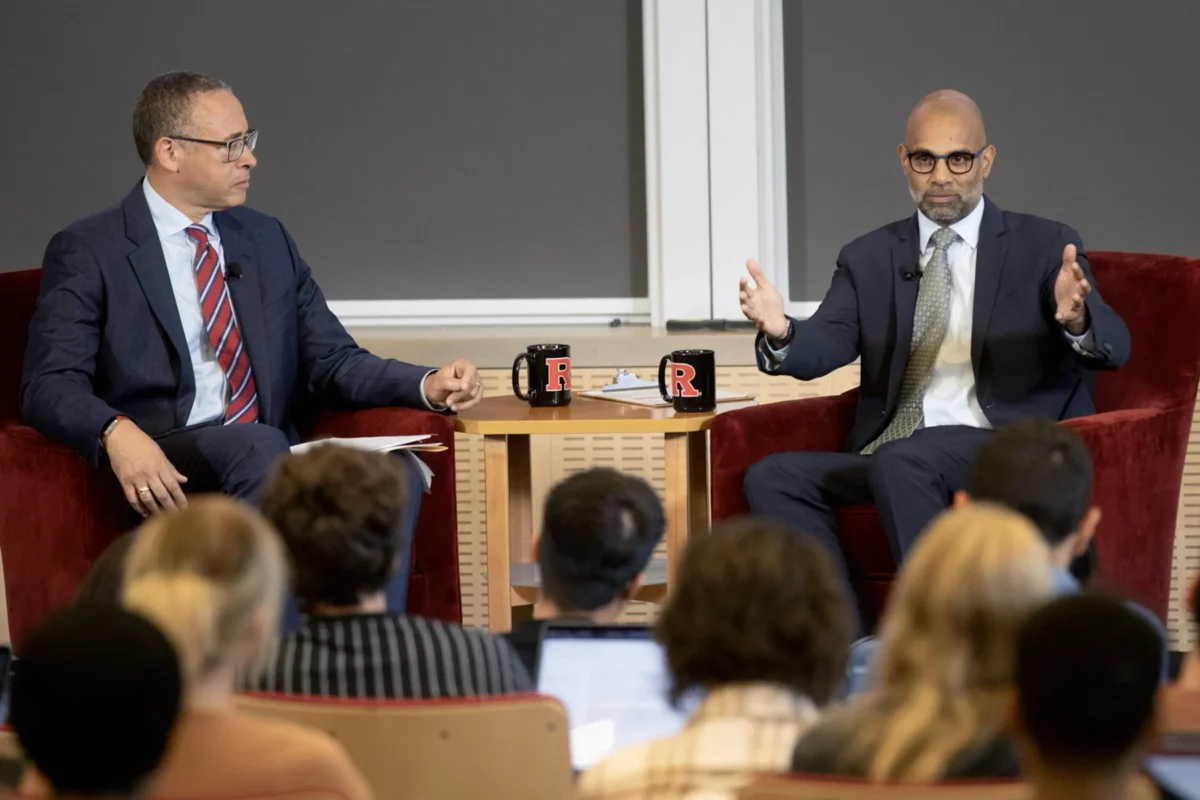
President Jonathan Holloway taught a Byrne Seminar this fall for first-year students titled “Citizenship, Institutions, and the Public.” The course examines the state of our nation and what it means to be a good citizen through a series of conversations with corporate, political, nonprofit, media, labor, and faith leaders. Raj Vinnakota was Dr. Holloway’s first guest. Their conversation ranged from the importance of civic preparedness to higher education’s role as a public good. Subsequent speakers included foreign policy veteran Richard Haas, Baptist minister DeForest B. Soaries, Jr., corporate executive Edith Cooper, FOX News correspondent Mike Emanuel, and former Secretary of State Condoleezza Rice.
“It’s really important for us to be able to critically think because that’s where we get our differing opinions and where we get new ideas from. I think these discussions allow you to see from other people’s points of view – something that you’re never going to be able to experience unless you truly are able to listen to one another and hear what a person has to say.” -Josh Goykhman, Rutgers first-year student, appearing on the University’s Instagram after President Holloway’s Byrne Seminar class.
Student Orientation
James Madison University – New Student Orientation: Freedom of Expression and Speech
Civic Commitment: Free expression
For: Students
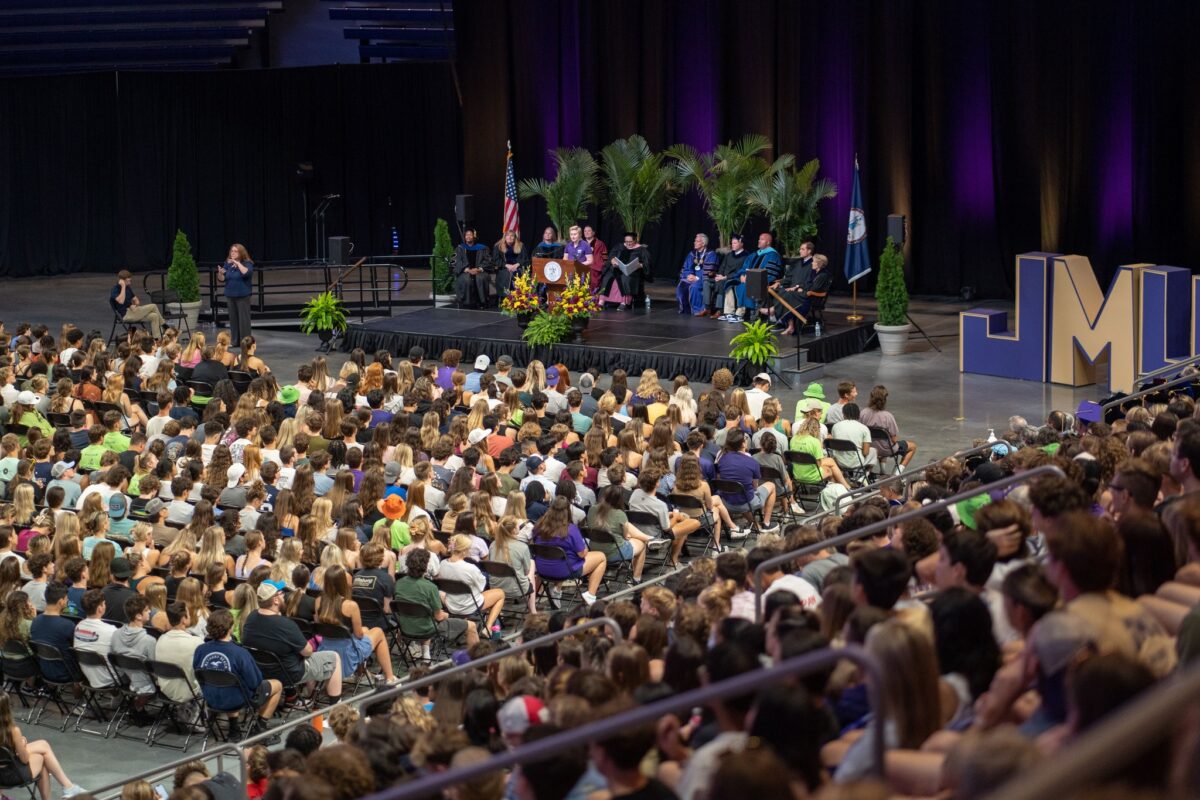
James Madison University partnered with the Bipartisan Policy Center to host a one-hour training for more than 4,000 incoming students to explore and celebrate the concept of free speech, its importance, and the opportunities it presents in academic settings. The interactive and engaging session fostered a deeper understanding of the principles of free speech and expression, encouraged open dialogue, and created a brave space for diverse opinions to flourish. The training asked the students to participate in real-time through a survey application and the school will use their responses to help design future trainings.
Denison University – Orientation Student Debates
Civic Commitment: Civil discourse
For: Students
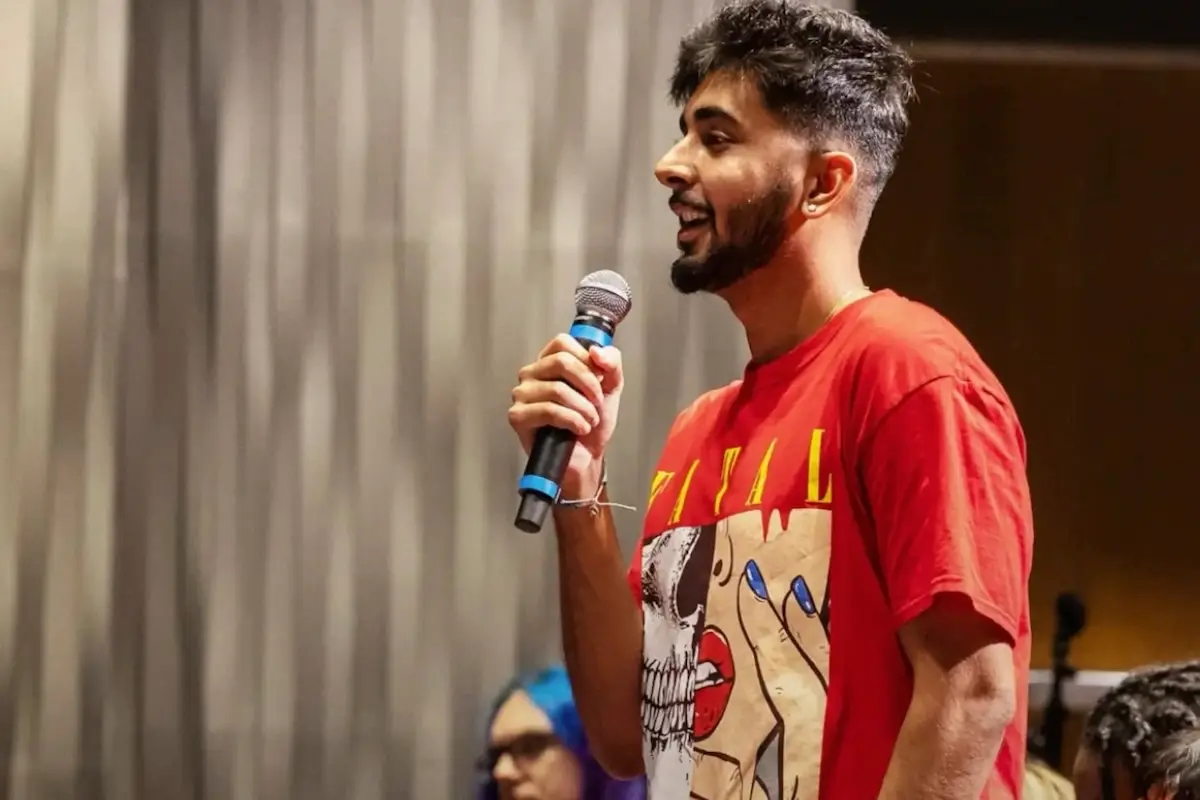
Denison University students participated in a live debate during freshmen orientation this fall to practice dialogue across difference. Students in the crowd were invited to stand and share their arguments about the ethics of ChatGPT with a facilitator; according to the rules developed and promoted by Braver Angels, a nonprofit focused on political depolarization. They could not directly address one another but had to respond strictly to the ideas presented. The debate had a meaningful impact on Denison’s students; in a survey sent to participants afterward, 80% of respondents said the exercise “caused them to re-evaluate their position [on free speech] even if they did not change their mind.” Even more said that the debate gave them a better understanding of other people’s viewpoints.
Faculty Development
Duke University – Civil Discourse Faculty Seminars
Civic Commitment: Civil discourse
For: Students, faculty
John Rose, director of Duke’s Civil Discourse Project, and his colleagues held an annual seminar, “Teaching Civil Discourse in the Classroom” from August 15-16, 2023, open to faculty from around the country. Also in August 2023, Duke University hosted the College Presidents for Civic Preparedness Faculty Institute. Both events provided training and resources to help faculty and administrators across the United States learn how to better guide classroom discussions focused on free expression and dialogue across difference.
“Nobody gets a Ph.D. in civil discourse, so many lack confidence in this area. They feel like something needs to be done and sense many students want a different classroom environment, but, as teachers, they don’t know how to do it.” -John Rose, Director of the Civil Discourse Project at Duke, as reported in Duke Today
Events
Wesleyan University – Democracy in Action Convening
Civic Commitment: Civic preparedness
For: Students, staff, faculty
Wesleyan students, faculty, alumni, and members of the broader university community came together with education, political, and media thought leaders Feb. 16-17, 2024, for critical discussions about the roles universities and students can play in defending democracy. The event opened with a Media Literacy Workshop where students learned how to fact-check claims across a variety of sources, determine the credibility of claims, and critically engage with political social media. The convening also allowed students to learn about a diverse range of civic organizations they can participate in, on-campus and off, through a student-hosted Civic Engagement Fair.
